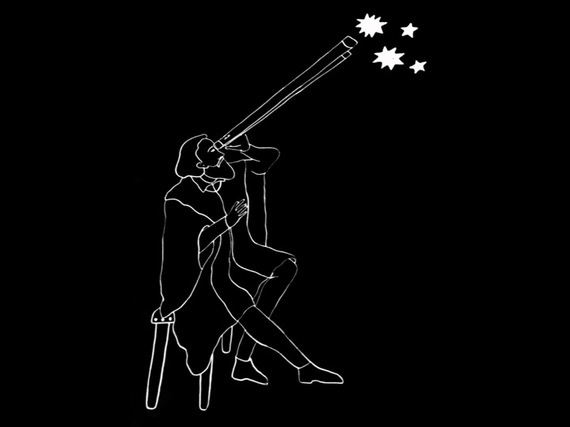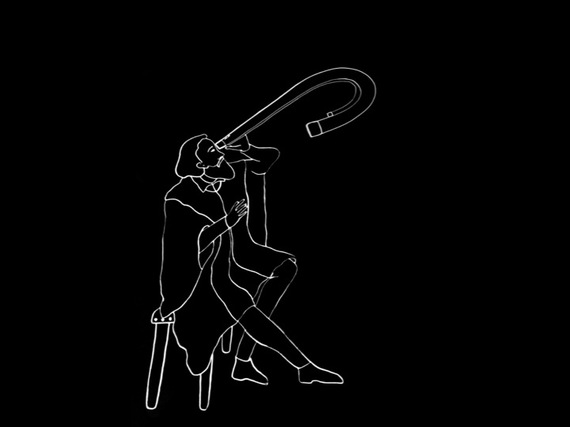Higher education has hit a wall -- particularly the business school. Four issues are upending higher education as it is constituted today:
It is overpriced: While the cost of higher education has skyrocketed, MOOCs (Massive Open Online Courses) have emerged as a game changer, opening doors to an unparalleled democratization of higher education. The marginal costs of online learning are basically zero. And yes, in spite of huge enrollment numbers (often 50,000-80,000 students per class), MOOCs have not yet been able to fully deliver on their high- flying promises. Critics often point to course completion rates--often as little as 5% of the enrollees complete a course--a sign that MOOCs are still evolving.
It is out of touch with the changing market needs: The old model of higher education worked for a remarkably long period, although not for everyone. Students invested in the pursuit of a career path that almost guaranteed a good income, which then enabled them to swiftly pay back their college loans. Those years are gone. With many industries having moved from the United States to Asia, and with increasing automation in manufacturing and management, many formerly well-paying middle-class jobs no longer exist; they have been replaced by service sector jobs that do not even pay a living wage.
The curriculum is outdated: The intellectual framework of the core curriculum in B-schools is flawed and the methodological foundations are outdated. Lectures as a teaching method have been around for more than 2,000 years, and the Harvard case study method for more than 140 years; and yet, they still account for most of what is going on in B-schools today. But what's worse is that the core curriculum--based on current mainstream economic and management thought--equips students with a mental framework that amplifies our global ecological and socio-economic crises instead of helping to solve them.
Mainstream economics and management not only failed to predict any of the fundamental social and economic shifts of the past 40 plus years--from the oil price shocks in the 1970s and the rise of the East Asian economies in the 1980s to the financial crisis in 2008; mainstream economic thought leaders have also failed to offer useful remedies for the profound ecological, socio-economic, and spiritual crises of our time. What's at the core of this problem is not a failure of individuals, but the failure of an outdated intellectual framework that is profoundly out of touch with today's challenges.
Its purpose is outdated: Although there have been many attempts to reform higher education, most have not succeeded. They have been limited to tinkering with structures, curriculum, and systems--ignoring the need to regenerate the university from its roots by reinventing its purpose in this century.
Historically, the classical university was based on the unity of research and teaching and served the purpose of conveying mostly theoretical knowledge. The modern university of the 20th century was based on the unity of research, teaching, and practice, and its emphasis shifted toward providing practical knowledge. What we currently witness can be seen as foreshadowing the next evolutionary stage based on the unity of research, teaching, and societal transformation, with transformation literacy at its core--that is, literacy in the personal, relational, and systemic foundations of leading profound innovation and change.
Summing up the problem: higher education is overpriced, out of touch, and outdated in both curriculum and purpose. The solution? The solution is beginning to emerge in many places today. One of such examples is the U-Lab at MIT, where I have been spending much of my time this year. Delivered by MITx free of charge through the online platform edX (co-founded by MIT and Harvard in 2012), this MOOC will prototype a new hybrid online/real-world learning environment, with the goal of sparking a global web of interconnected hubs, inspiring initiatives, and grounding learning locally in places where societal challenges are manifest (watch this clip).
The U-Lab offers a new type of learning environment that is personal, practical, relational, mindful, collective, and transformative.
"Personal" means that you are expected to bring your full self to the class, both who you are today (your current self) and who you might be tomorrow (your emerging future self).
"Practical" means that each week you apply a specific tool in your professional context and in the final stage of the Lab you prototype the future that you want to create in order to learn by doing.
"Relational" means that each week you will engage in a deep dialogue-based peer coaching session with five fellow Lab participants and take turns sharing a case.
"Mindful" means that each week you will be introduced to a mindfulness practice that strengthens your capacity to pay attention to your attention and helps you to intentionally shift the inner place from which you operate.
"Collective" means that this Lab will take you on a journey with others. Live-streamed sessions connecting Lab participants with inspirational change makers across cultures will facilitate this collective journey.
"Transformative" means that the core curriculum of the U-Lab is grounded in a social leadership technology that enables participants to sense and actualize emerging future possibilities.
Reinventing the 21st-century university requires addressing all four of the key issues mentioned above:
•price: make it free (accessible) for all
•relevance: focus on profound societal and personal transformation
•curriculum: link global action learning with an evolutionary economic frame
•purpose: to serve the current evolution of society and self by helping people to sense and actualize their highest future possibility both individually and collectively.
The future of higher education is already here. It's being researched and tested through prototypes that are emerging around the world--like the U-Lab. But what will it take to move from developing prototypes to shifting the system as a whole?
What it takes, I believe, is to transform the fundamental thinking that underlies our modern civilization- science, technology and learning. The 1.0 version is a science that is applied to exterior data only (third person view), while the 2.0 version applies the scientific activity also to deep data or the more subtle aspects of our experience (third person and first person view). That shift in perspective bends the beam of scientific observation back onto the observing self (graphic below).
The capacity to perform this shift is at the heart of the developmental threshold that we are facing in this century as individuals, organizations, systems, and communities. In individuals the capacity is referred to as awareness or mindfulness (paying attention to your attention); in organizational and systems change it is referred to as systems thinking (making the system see itself). In both cases there is a shift from ego-system awareness (thinking in silos) to eco-system awareness (thinking from the whole).
Maybe the finest role of universities in this century would be to nurture this capacity not only among individuals, organizations, and systems, but on the level of society--by holding up a mirror, helping individuals and their institutions to see themselves from the evolving whole, creating a genuine space for self-reflection and for dialogue on what may well be the most important conversation of our time: who we are as human beings, who we want to be, and what future society we want to live in.
The U-Lab aspires to be a step into this direction--a prototype. To make it work at the scale necessary today will require many collaborators. If you want to support this effort, please share this link, register for the Lab (which is free; sign up here), or even sign up to co-convene one of its hubs. Let us know what you think. Thank you!


